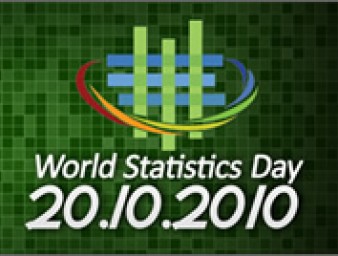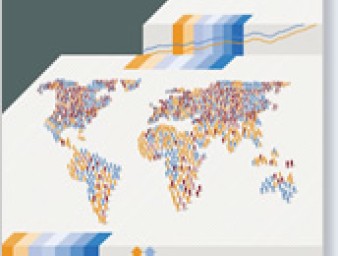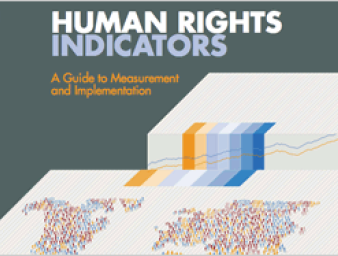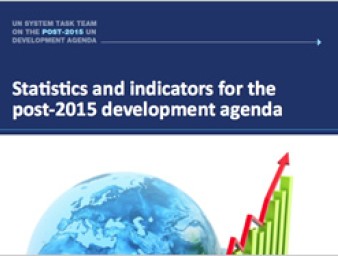Counting groups left behind: a stellar step for inclusion in Kenya
27 November 2019

"When we are counted, we begin to count, and the fundamental contribution of human rights is that we all have the right to be counted. That's the beginning of accountability" says Nicolas Fasel, chief statistician at the Office of the High Commissioner for Human Rights.
And counting populations - or deciding not to do so - is not neutral. For Kenya, the ambition to leave no one behind, in the perspective of the 2030 agenda, found its way to the National Population and Housing Census 2019.
Pursuant to the Sustainable Development Goals clarion call of 'leave no one behind', OHCHR Kenya brought together the National Human Rights Institution (KNCHR) and the National Bureau of Statistics (KNBS) in a partnership that sought to identify the communities or groups of people who have historically been left out during policy making.
KNBS, KNCHR and OHCHR jointly identified some 28 groups considered to have been left behind with respect to data generation. This was a huge milestone, as it laid the foundation for ensuring these groups are progressively included in national statistical estimates with respect to different variables at macro levels.
"As OHCHR, it was imperative that we list these marginalized group from the basis of the work done by the international human rights mechanisms," says Nicolas Fasel.
"This partnership between the national human rights commission and the bureau of statistics is one of the first of such partnerships and has huge potential in shaping the implementation of the SDGs in Kenya from a human rights lens," says Claris Ogangah, a human rights officer with OHCHR Kenya who was instrumental in the conclusion of a Memorandum of Understanding (MoU) between the KNBS and the KNCHR in 2017, to mainstream a human rights based approach to the collection of data.
This partnership led OHCHR Kenya to engage in the preparation of the Kenya Population and Housing Census that was conducted in late August 2019 and whose provisional results were released on 4 November 2019.
Numbers inform policy, planning & resource allocation
Through its collaboration with KNBS and KNCHR, OHCHR Kenya influenced the development and inclusion of questions - in particular, on disability (based on the Washington Group set of questions on disability), persons with albinism, intersex people, indigenous peoples and stateless persons - which were subsequently factored into the census questionnaire.
"OHCHR was involved from the time they supported KNBS and KNCHR to enter the MoU, and supported the Bureau in all phases of census undertaking, from preparatory work including the design of the questionnaire, to engaging with technical working groups on human rights indicators, to the actual enumeration in the field", states Mr Zachary Mwangi, Director General of KNBS.
Through direct involvement in a technical working committee, OHCHR Kenya was involved from the initial stages of census preparation and design to monitoring the field process, both in the pilot census in August 2018 and the main census exercise in August 2019.
The Kenya Population and Housing Census 2019, the sixth since Kenya's independence in 1963, is the most innovative and progressive census to date. "It was the first paperless census that incorporated technology across all phases of the census process. The mobile devices were assembled by local universities and the data capture software was developed internally by KNBS," notes Zachary Mwangi.
OHCHR Kenya, working with partners in Government and within civil society, advocated for mainstreaming a human rights based approach to the collection of data on marginalised groups, participation, census data disaggregation, self-identification, privacy and transparency. As a result, the census form included a third gender - intersex - and expanded the list of communities to include indigenous and marginalised communities for recognition and inclusion.
"These groups have previously been left behind and the partnership between KNCHR and KNBS recognised the need to have everyone count in such an important national exercise in line with the Sustainable Development Goals clarion call and also in line with the nation's Constitution," says Petronella Mukaindo, KNCHR programme officer.
Failure to recognise these groups would have meant not acknowledging their existence and that would perpetuate human rights violations. "A census exercise, being the most comprehensive national exercise on data collection, and one that takes place once in a decade, it is paramount that no one is left behind. Numbers inform policy, planning, resource allocation and even delimitation of boundaries in the Kenyan context," stressed Petronella Mukaindo.
Persons with albinism must count in decision-making
Through the advocacy and support of OHCHR Kenya, questions on albinism were included in the census, and this was the very first time that persons with albinism were counted in Kenya.
For members of the Albinism Society of Kenya, a national organization that acts as a platform in championing for the rights and needs of persons with albinism in Kenya, this is a great milestone as they had started a campaign to be counted in 2009, through a petition presented to Parliament.
"OHCHR Kenya was instrumental in advocacy towards the inclusion of the albinism in the census instruments and working with organisations of and for persons with albinism prepared a position paper and lobbied the Kenya National Bureau of Statistics towards their inclusion," reminds Petronella Mukaindo.
"The clamour for our inclusion into the mainstream society hasn't been easy. Persons with albinism must count in decision-making," claims the national coordinator of the Albinism Society of Kenya, Isaac Mwaura who is also the first Member of Parliament and senator with albinism in Kenya.
The inclusion of people with albinism in this 2019 census will contribute to better policies and programmes that will benefit them. "Having accurate numbers on persons with albinism will help the State in improving its services to persons with albinism, and in particular, the albinism support programme," notes Petronella Mukaindo.
On 18 September 2018, Ikponwosa Ero, the UN Independent Expert on the enjoyment of human rights by persons with albinism, declared that Kenya "was set to become a regional leader on the issue." Indeed, with this 2019 census, a stellar step has been achieved towards that path.
The census will also provide statistical information that will support the equitable implementation of the Sustainable Development Goals and enable the assessment of progress made against targets and indicators. This is essential to ensuring that the Sustainable Development Goals further the enjoyment of the human rights of all, and that no one is left behind.
28 november 2019




